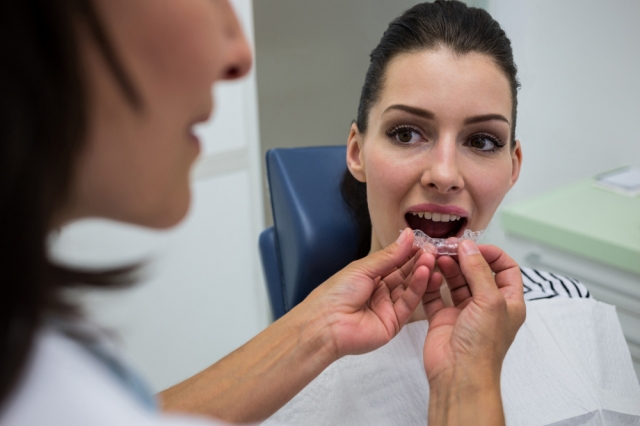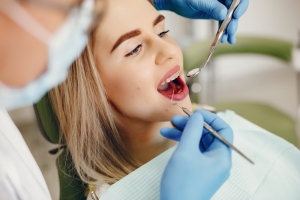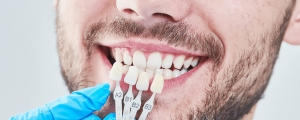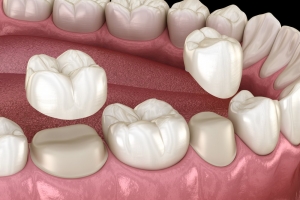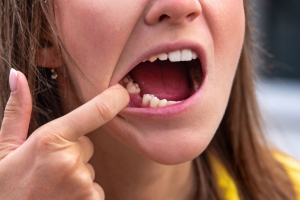If you often wake up with a sore jaw, experience frequent headaches, or notice unusual tooth sensitivity, you may be dealing with teeth grinding, also known as bruxism. Many people underestimate this common condition, assuming it is harmless. But the truth is that bruxism can quietly cause serious oral health problems over time.
From wearing down your enamel to triggering jaw pain and headaches, the effects can be far-reaching. Chronic grinding can misalign your teeth as well. Recognizing the signs early is essential.
Treatments like Invisalign Renton or a night mouth guard can help you prevent or treat the effects of bruxism. This helps you take proactive steps to protect your teeth, ease discomfort, and maintain long-term oral health
What Is Bruxism?
Bruxism refers to the involuntary clenching, grinding, or gnashing of teeth, often occurring during sleep or periods of heightened stress. It's a common condition that can affect individuals of all ages. While occasional teeth grinding may not cause harm, frequent or intense bruxism can lead to various dental problems.
How Bruxism Impacts Your Oral Health
Understanding these effects highlights just how severe bruxism can be and is essential to identify the causes and explore effective treatment options.
-
Tooth Wear and Damage
Persistent grinding can erode tooth enamel, resulting in increased sensitivity, cracks, or, in severe cases, tooth loss. The constant pressure can also cause dental restorations, such as fillings or crowns, to fail prematurely.
-
Jaw Pain and TMJ Disorders
Using too much force while grinding can strain the jaw muscles and joints, which may lead to temporomandibular joint (TMJ) disorders. Symptoms include jaw pain, clicking sounds, difficulty opening or closing the mouth, and headaches.
-
Headaches and Facial Pain
Bruxism can contribute to tension headaches and facial pain due to the constant clenching of jaw muscles. These headaches often occur in the morning and can be mistaken for other types of headaches.
-
Gum Recession
The pressure from grinding can cause gums to recede, exposing tooth roots and increasing the risk of gum disease. Receding gums may cause tooth sensitivity and affect appearance.
What Are the Causes of Bruxism?
Grasping the underlying causes of bruxism is crucial for developing effective treatment strategies. Common contributors include:
- Stress and Anxiety: Emotional stress and anxiety can cause heightened muscle tension and teeth grinding.
- Sleep Disorders: Conditions such as sleep apnea can interfere with sleep patterns and lead to bruxism.
- Medications: Certain medications, like selective serotonin reuptake inhibitors (SSRIs), have been linked to bruxism.
- Lifestyle Factors: Excessive alcohol consumption, smoking, and high caffeine intake can increase the risk of grinding.
- Dental Issues: Misaligned teeth or a problematic bite can lead to bruxism.
Effective Treatments for Bruxism
Addressing bruxism involves a combination of professional dental care and lifestyle modifications.
-
Custom Night Guards
A custom-fitted night guard is among the most effective solutions for bruxism. It acts as a barrier between your upper and lower teeth. It stops direct contact and lowers the chance of damage. Designed for comfort and durability, it offers reliable protection throughout sleep.
-
Stress Management Techniques
Since stress is a key trigger for bruxism, incorporating stress-relief activities into your daily routine can be beneficial. Practicing meditation, deep breathing, yoga, and staying physically active regularly can help lessen stress and decrease grinding episodes.
-
Behavioral Therapy
Cognitive-behavioral therapy (CBT) can effectively target the psychological factors underlying bruxism. CBT helps people recognize and alter negative thoughts and behaviors, which can decrease grinding.
-
Dental Corrections
If misaligned teeth or an abnormal bite are causing bruxism, consider dental treatments like orthodontics or restorations. Addressing these issues can relieve pressure on your teeth and jaw.
-
Medications
In some situations, medications might be prescribed to control bruxism. Muscle relaxants can help reduce muscle tension, while anti-anxiety medications may address underlying anxiety disorders. Botox injections have also been explored as a treatment option for severe cases of bruxism.
Preventive Measures to Avoid Bruxism
Taking proactive steps can help prevent bruxism or minimize its impact:
- Maintain a Healthy Lifestyle: Maintain a balanced diet, exercise regularly, and ensure enough sleep to lower overall stress.
- Limit Stimulants: Reduce or eliminate the consumption of alcohol, caffeine, and nicotine, as these substances can increase the risk of grinding.
- Practice Relaxation Techniques: Incorporate relaxation exercises into your daily routine to manage stress effectively.
- Regular Dental Check-ups: Schedule regular dental check-ups to keep track of your oral health and resolve any problems quickly.
When to Seek Professional Help
If you experience any of the following symptoms, it's important to consult with a dental professional:
- Persistent jaw pain or soreness
- Frequent headaches, especially upon waking
- Tooth sensitivity or visible tooth damage
- Difficulty opening or closing your mouth
- Noticeable wear on your teeth
A dentist can assess your condition, find the root causes, and suggest suitable treatments to safeguard your oral health.
Conclusion
Teeth grinding, known as bruxism, is more than a minor annoyance; if not addressed, it can cause serious oral health problems. By identifying the causes and applying effective treatments, you can safeguard your smile and enhance your overall health. If you suspect you're grinding your teeth, don't hesitate to seek professional advice. With the right approach, you can manage bruxism and maintain a healthy, pain-free smile.
